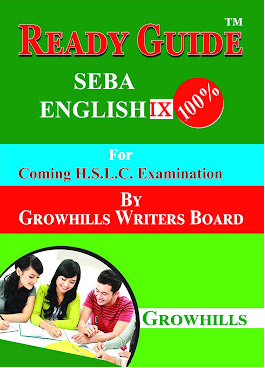Ranga’s Marriage | Question Solutions
Ranga’s Marriage Question Solutions
Ranga’s Marriage Question Solutions
– Masti Venkatesha Iyengar
Ranga’s Marriage Question Solutions
SELECTED QUESTION SOLUTIONS
Q.1. Comment on the influence of English – the language and the way of life – on Indian life as reflected in the story. What is the narrator’s attitude to English?
Ans: The background of the story ‘Ranga’s Marriage’ dates back to the time of British Rule in India. At that time village, people hardly knew English. For example, Rama Rao’s son bought a bundle of firewood and he told a woman that he did not have any ‘change’. But the woman did not understand the word ‘change’ and went away. They did not even like to use any English words in their everyday talking. The village accountant was the first one who had enough courage to send his son Ranga to Bangalore for study. It was a bold decision. But the village people thought that one who received an education in English lost his caste and culture. But Ranga seemed to be an exception.
The author’s attitude towards English was positive and considered English to be a ‘priceless commodity.
Q.1. Astrologers’ perceptions are based on more hearsay and conjecture than what they learn from the study of stars. Comment with reference to the story.
Ans: Astrology is not true science. It is based on conjecture. The astrologers neither care much for the stars and their effects on man’s life nor do they have any knowledge of science. And the village people are mostly superstitious. They take everything to be truly foretold by astrologers.
The story ‘Ranga’s Marriage’ bears a detailed reference to the works of astrologers. The narrator of the story took Ranga to Shastri the astrologer in order to make him know the things which was worrying Ranga. But what the Astrologer Shastri uttered was not based on science. He repeated the same thing after the author’s tutoring regarding Ranga’s marriage. To impress Ranga, the astrologer moved his lips, counted on his fingers, and told what was taught to be foretold.
Q.3. Indian society has moved a long way from the way marriage is arranged in the story. Discuss.
Ans: The arrangement of Ranga’s marriage as depicted in the story was at a time when the old ways of life were still in vogue. Then child marriage was not a ban. Love marriage did not come into fashion.
But the twenty-first century has moved a long way from the way of marriage as arranged in the story. Nowadays boys and girls do not need a middle man for the negotiation of marriage. They try to understand each other personally. The guardians enjoy less freedom in getting their children married. Most marriage is solemnized in court. Nowadays child marriage is strictly banned by laws. Love marriage has become a popular fashion. Thus Indian society has moved a long way in matters of the marriage system.
Q.4. What kind of a person do you think the narrator is?
Ans: The role displayed by the narrator in the story shows that he was a gentleman with a modern outlook. He seems to be a good judge of men and matters. In him, there is a combination of the ideals of both the east and west. He is neither against the learning of English nor in favour of denouncing the Indian culture. He is aware of the call of the time and goes with the air of his environment. He wishes for gradual social change. He is a well-wisher of Ranga. He thinks that Ratna is suitable for Ranga. So he, to avoid unnecessary criticism, contracts Shastri, the astrologer and makes him foretell about Ranga’s marriage after his tutoring. As a result Ranga and Ratna get married and we see that they proved to be a good couple.
After all the narrator was a kind-hearted gentleman. 0 0 0.
Ranga’s Marriage Question Solutions
Our Ready Guides for H S Students:
Additional Searches:













